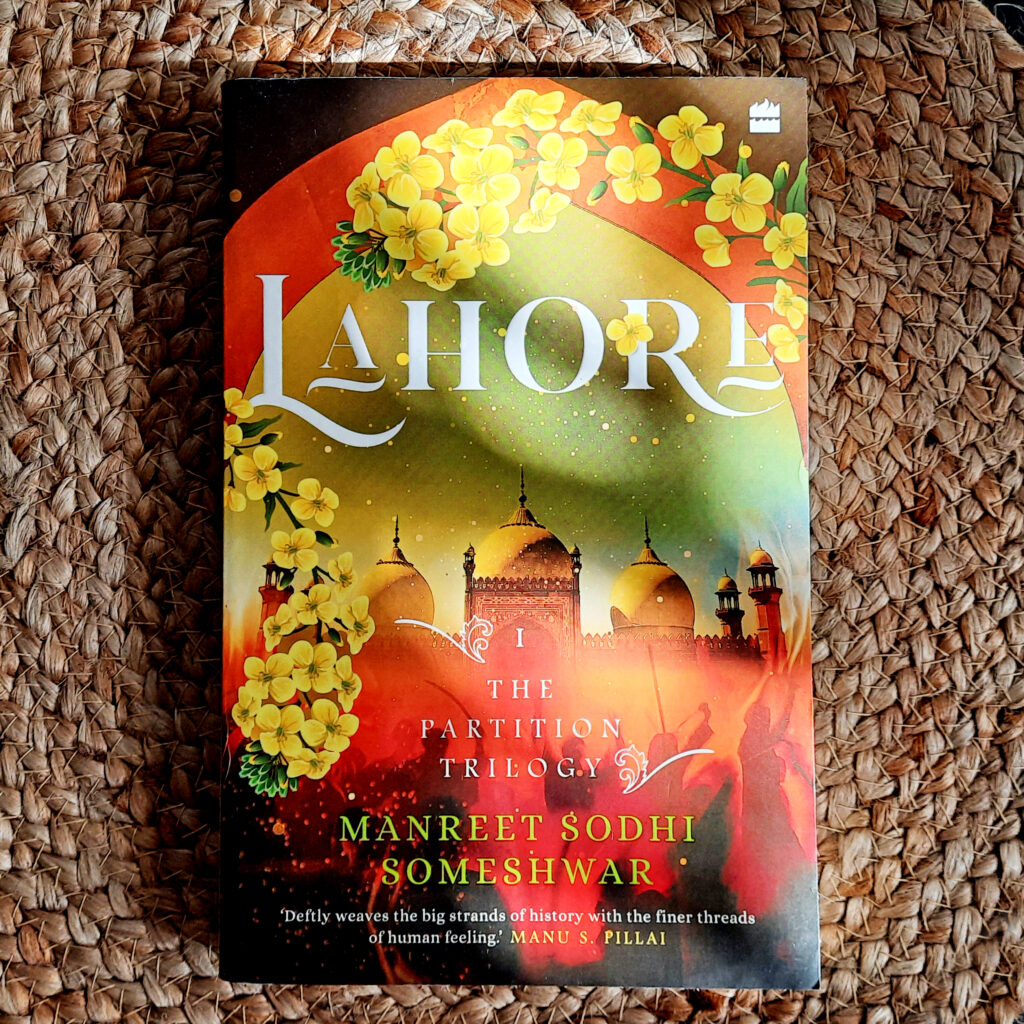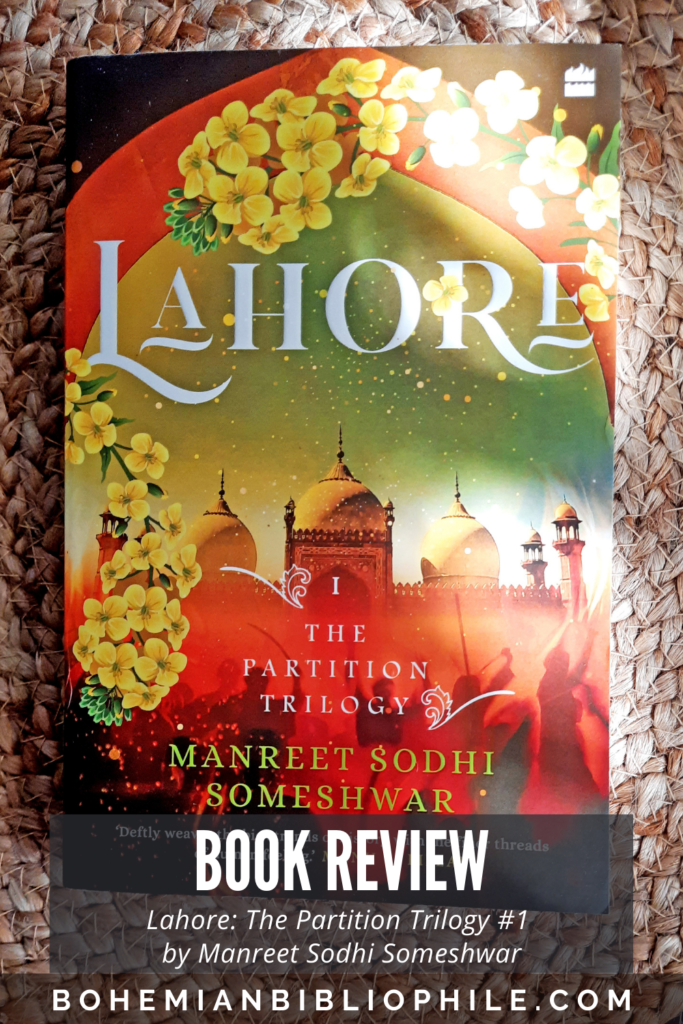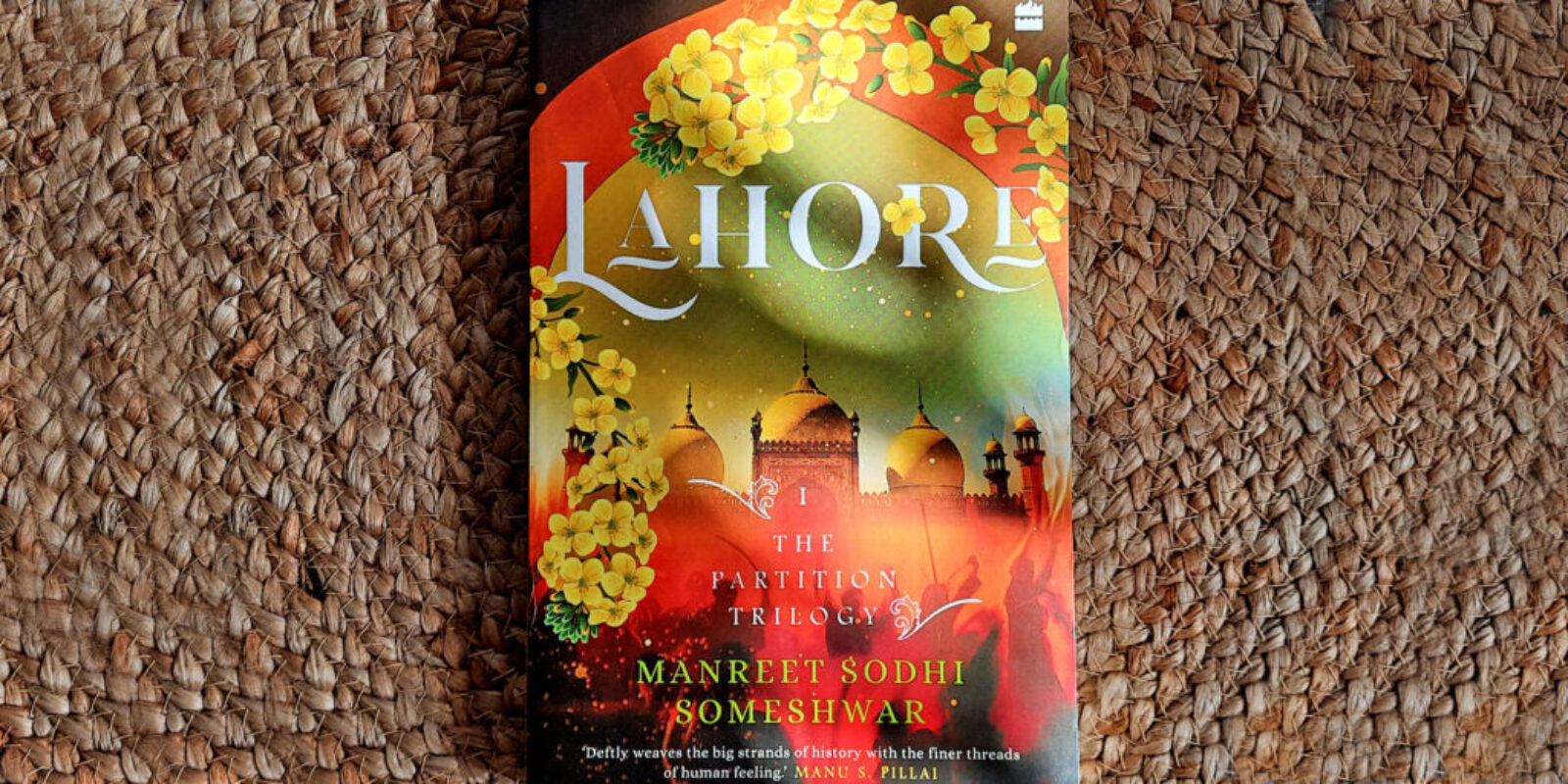
Genre: Historical Fiction
Publisher: HarperCollins India
Pages: 360
Published: September 2021
Rating: 5/5
Buy at: Buy on Amazon | Add to Goodreads
Review:
India gained independence in 1947 and it came at a huge cost. A line was drawn on a map and millions of people were uprooted. Taking away our roots, our history, and our sense of belonging. A wound so deep that it continues to fester seventy-five years hence.
Set in the year 1947, Lahore is the first book in the Partition Trilogy by Manreet Sodhi Someshwar. Backed with years of research, it is a fictionalized account of the most tumultuous time of Indian history – the independence and the partition. About the negotiations and deliberations by decision-makers in Delhi and the impact on the commonfolk in Lahore. How tides changed with friends and neighbors baying for each other’s blood. How, as always, the women were the victim of it all. And among the chaos, stories of lasting friendships and humanity.
Exploring the individual beneath the larger-than-life persona of the founding fathers of the nation is what sets the book apart. Although there is quite a bit of creative liberty here, we gain an insight into the struggles faced by them. A peek into their household where women were not just relegated to the kitchen but contributed to the decision-making.
What promised land were they heading to?
Wasn’t free independent India supposed to be that promised land?
The book is an interesting mix between fiction and non-fiction with two concurrent threads. Delhi explores the struggles of Vallabh Bhai Patel and Jawaharlal Nehru to retain the sovereignty of the yet to be free country in face of civil war and power-hungry politicians. It also explores the story of Dickie Mountbatten, India’s first Viceroy, who was assigned the task of transfer of power with the aptly titled Operation Scuttle.
Alongside, we are made privy to the state in Lahore – before, during, and right after the partition. The story of railway coolies Beli Ram and Mehmood. Clerk Kishan Singh and his three daughters. World war veteran, sepoy Sikandar Malik and his sweetheart, Tara. Common people trying to make sense of something insurmountable.
The cover is breathtaking. The writing is lucid and has you turning the pages, although you can sense the looming doom. The narrative switches between the two threads with equal ease.
In a lot many ways, the book felt personal. Because these are the stories of my family too. Much like the author’s, my family belonged to the other side of the border, Rawalpindi to be exact. It reminded me of dining table conversations with my grandparents discussing Kauntrila and the partition. How my paternal grandfather was forced to leave behind everything he owned at the railway station in Rawalpindi when he was asked to leave behind his young sisters-in-law instead.
As we lose the people who lived these experiences, we are losing the stories too. Not just our history, but our language as well. The dialects Pothwari and Jhangi are barely heard in India today. I am really glad that authors are sharing these stories that would have soon died out.
There are those tiny nuances that make the book more endearing. Usage of names such as Laur and Ambarsar. Names that are still used by my grand aunts and uncles. The author also shares nuggets that are relatively unknown. 30th June, 1948 was meant to be the actual date of Independence. That Plan Balkan was charted to divide India into Hindustan, Pakistan, and Pricestan with 565 princely states. One can imagine what that would have meant for the territorial integrity of the new country.
Although the stories of the common men and women appear to be fiction, they are indeed based in reality. Something which gives you goosebumps.
I highly recommend the book. If you are a history buff or otherwise, it is an excellent read. I am looking forward to reading the upcoming books in the series – Hyderabad and Kashmir.
Lahore: The Partition Trilogy by @manreetss #BookReview @HarperCollinsIN @blogchatter #BookChatter #LahorePartitionTrilogy Share on X
About the author
Manreet Sodhi Someshwar is an award-winning and bestselling writer of seven books, including the Mehrunisa series and the critically-acclaimed The Long Walk Home and The Radiance of a Thousand Suns, and most recently, The Partition Trilogy. Hailed as ‘a star on the literary horizon’ by Khushwant Singh and garnering endorsements from Gulzar for two of her books, Manreet and her work have featured at literary festivals in Singapore, Shanghai, Hong Kong, India and NYC. Her articles have appeared in The New York Times, the South China Morning Post and several Indian publications. Manreet lives in New York, New York, with her husband, daughter and cat.
This review has been written as part of the Blogchatter Book Review Program. I was offered the book in exchange for an honest review. All opinions are my own.
This post may contain affiliate links. If you click on a link and make a purchase, I may receive a very small percentage of the sale at no cost to you.


December 30, 2021 @ 11:37 am
Beautiful review! I didn’t know you would find a personal connection with the book. It must have meant much more to you to read the stories you’ve been hearing.
January 3, 2022 @ 4:49 pm
Thank you, Satabdi 😊. Partition stories always have a special place in my heart.
January 3, 2022 @ 10:34 am
Very well expressed book review, Ritu. I was looking forward to your review as they speak the real emotions that a reader experiences while he/she flips a page.
This makes it easy for me to pick my next book.
January 3, 2022 @ 4:59 pm
Thank you so much, Geethica 😊 Made my day! I am so glad my reviews resonate with you.